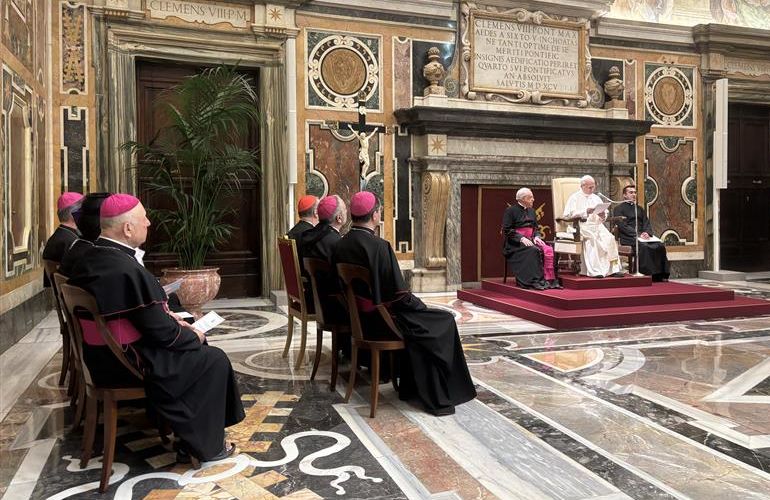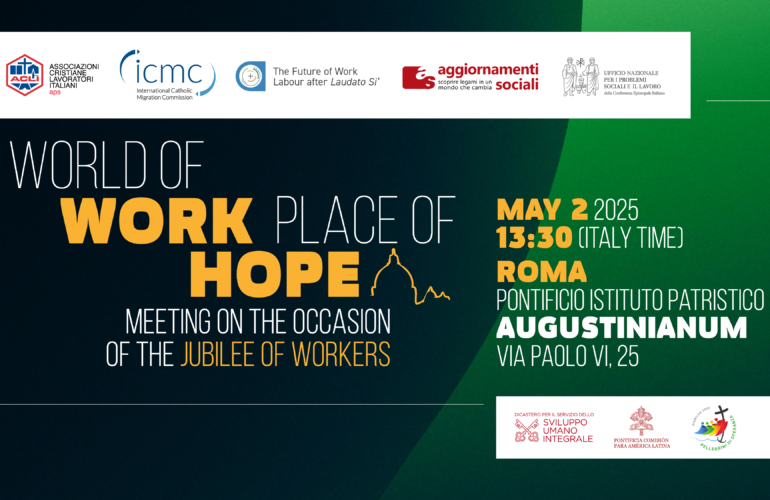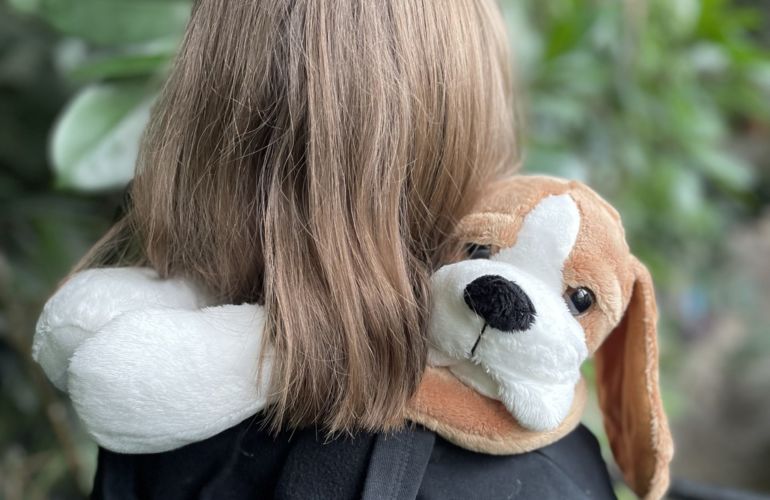Protecting Internally Displaced Children and Vulnerable Families in Burkina Faso
ICMC and the Episcopal Commission for the Pastoral Care of Migrants and Refugees of Burkina Faso are working together to offer protection and humanitarian assistance to internally displaced people. The program, launched in September 2020, focuses on children displaced by increasing violence in the country and the added vulnerability caused by the ongoing COVID-19 crisis. It offers Child Friendly Spaces, access to essential services, education and psychosocial support.
In 2022 Burkina Faso continues to experience widespread violence and political instability, rooted in nearly a decade of escalating armed conflict in the Central Sahel, weak governance and insecurity in neighboring Mali and Niger. The violence has greatly increased in recent years, causing a humanitarian crisis and massive internal displacement throughout the country. In the past three years, the number of Internally Displaced Persons (IDPs) has increased 45-fold to nearly 1.4 million. Access to food, water, sanitation, shelter, education and basic social services has become increasingly difficult for both displaced and host communities.
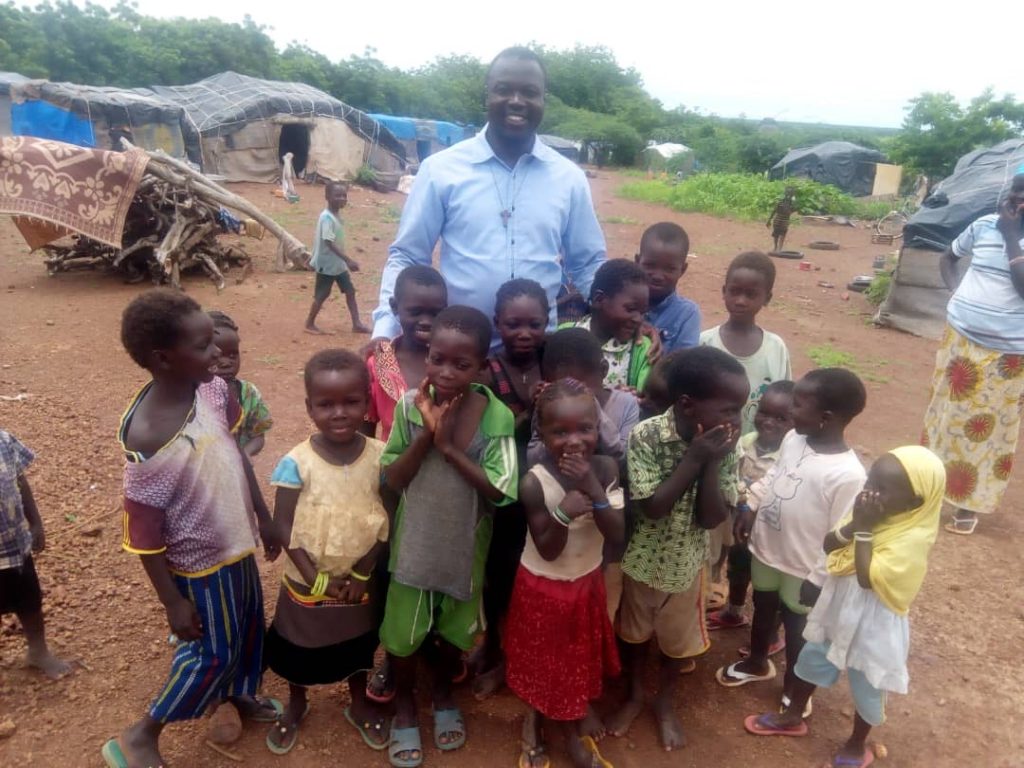
The COVID-19 global health crisis has also taken a significant toll on the country and its population. Burkina Faso is a largely an agrarian society in which 40% of the population live below the poverty line. Restrictions linked to COVID-19 meant that 80% of households working in agriculture altered their operations, leading to widespread loss of employment and food supply issues. The closure of international borders, as well as drought in Africa’s Sahel region, additionally meant that Burkina Faso could not export its products, plunging many households further into poverty. Today, the World Food Program estimates that 2.1 million people across the country are in need of urgent, lifesaving food.
COVID-19 also highlighted community protection risks emerging from and exacerbated by both violence and public health emergencies, particularly those affecting children.
Childcare and school closures and a lack of appropriate supervision can lead to physical, emotional, or sexual abuse in homes or alternative care settings. Illness, death, or extended absences of caregivers or other close family members can also bring about psychosocial distress and an increase in unaccompanied and separated children. Loss of household income directly contributes to increases in child labor, and social exclusion of those infected with COVID-19 or assumed to be so also impacts children.
With Hands and Eyes on the Ground
The Episcopal Commission for the Pastoral Care of Migrants and Refugees in Burkina Faso (CEPMR) supports migrants, asylum-seekers, and internally displaced persons (IDP). With its robust community network and presence on the ground, it can easily access populations in need. As a first-line responder, CEPMR has been actively addressing the needs of communities affected by COVID-19 and the humanitarian crisis in Burkina Faso’s central and northern regions.
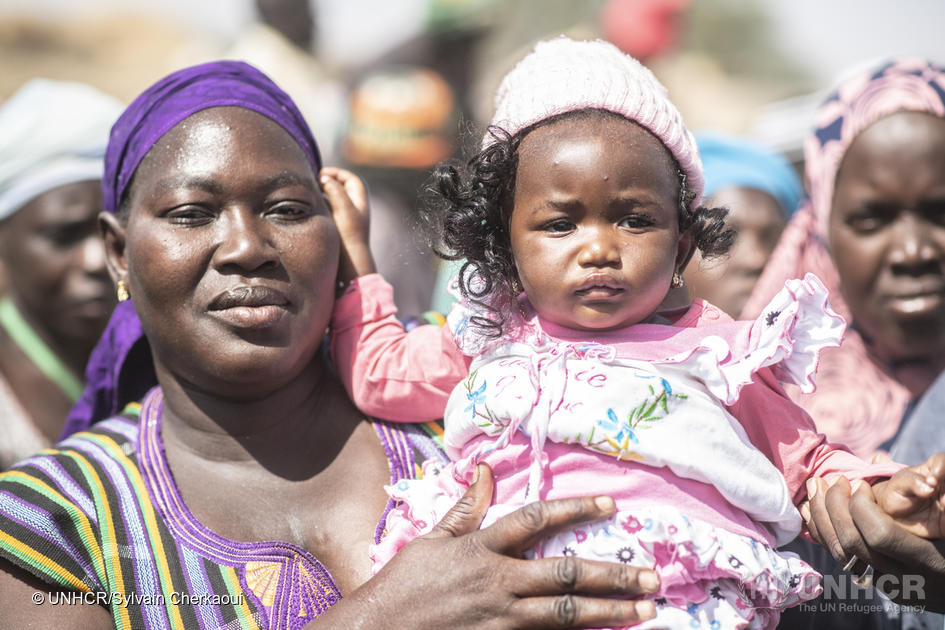
In times of crisis, faith-based organizations are particularly well placed to identify and respond to community-level risks and are critical partners in strengthening and maintaining protective environments for children and families. Faith leaders are trusted, have unique access to communities, and can initiate and influence behavior change. Faith leaders and institutions are often the first points of contact for communities in need and for those that are socially isolated.
Thanks to its outreach and assessment among families and individuals affected by the ongoing crises, in September 2020, CEPMR in cooperation with ICMC launched a program to actively address the needs of communities affected by COVID-19 and the ongoing humanitarian crisis in Burkina Faso.
Protecting Children and Providing a Sense of Normalcy
In 2021, ICMC and CEPMR were able to establish a Child Friendly Space (CFS) that has supported nearly 100 displaced and needy local children and supported their families in the parish of Bourzanga (located in the North of the country) over the past year. There, an estimated 70% of the approximately 45,000 IDPs in the town are under age 18, and the parish houses about 1,200 IDPs, including 36 children orphaned due to violent terrorism.
The Child Friendly Space program has provided children with protection, informal education and recreational activities, as well as support for parenting skills and referrals to other resources for families. Initially funded by a grant from the Raskob Foundation for Catholic Activities, a bridging grant from ICMC enabled the CFS to continue operating until new funding was secured. Longer term funding for the CFS program has also been provided by the International Catholic Child Bureau (BICE) and the Raskob Foundation.
Child Friendly Spaces are areas where children can gather, feel protected, find learning materials and recreational supplies, and access useful services and assistance. The CFS program enables children to recover from trauma and build confidence by engaging in social interactions with their peers. These activities are essential to help children re-establish a sense of normalcy in their daily lives that have been so disrupted by the ongoing conflict.
Needs remain high as the security situation is so volatile and support from other organizations has declined. The Bourzanga parish now plans to expand its child protection services to include nutrition, health and psychosocial support, in addition to informal educational and recreational activities for the most vulnerable families.
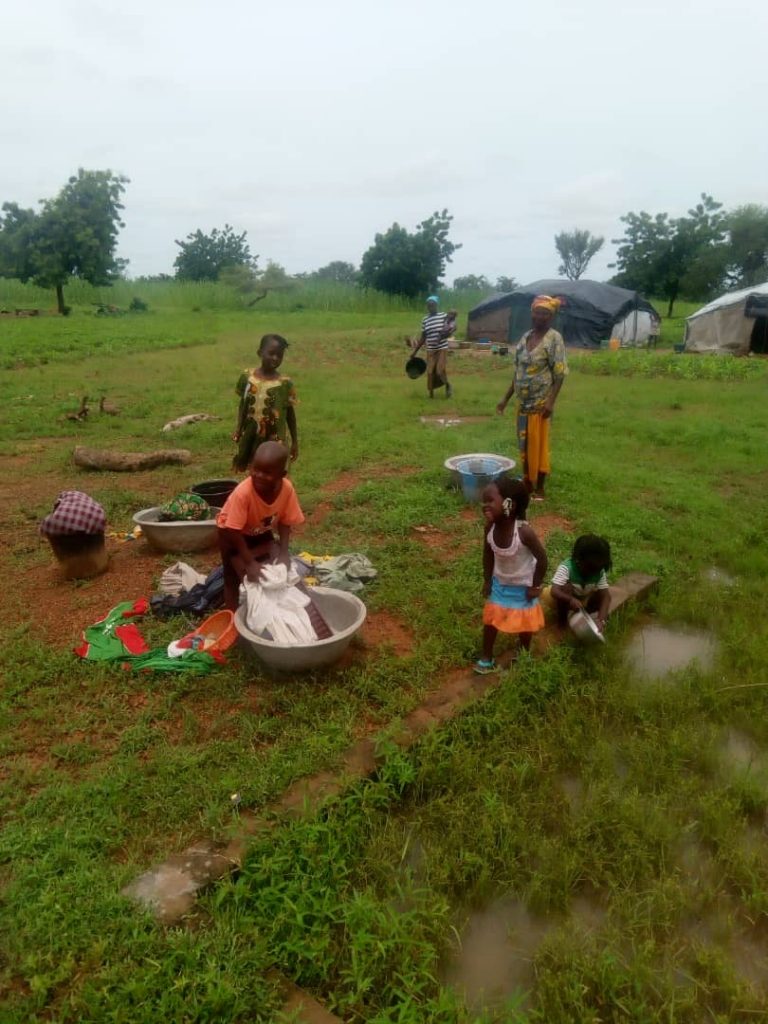
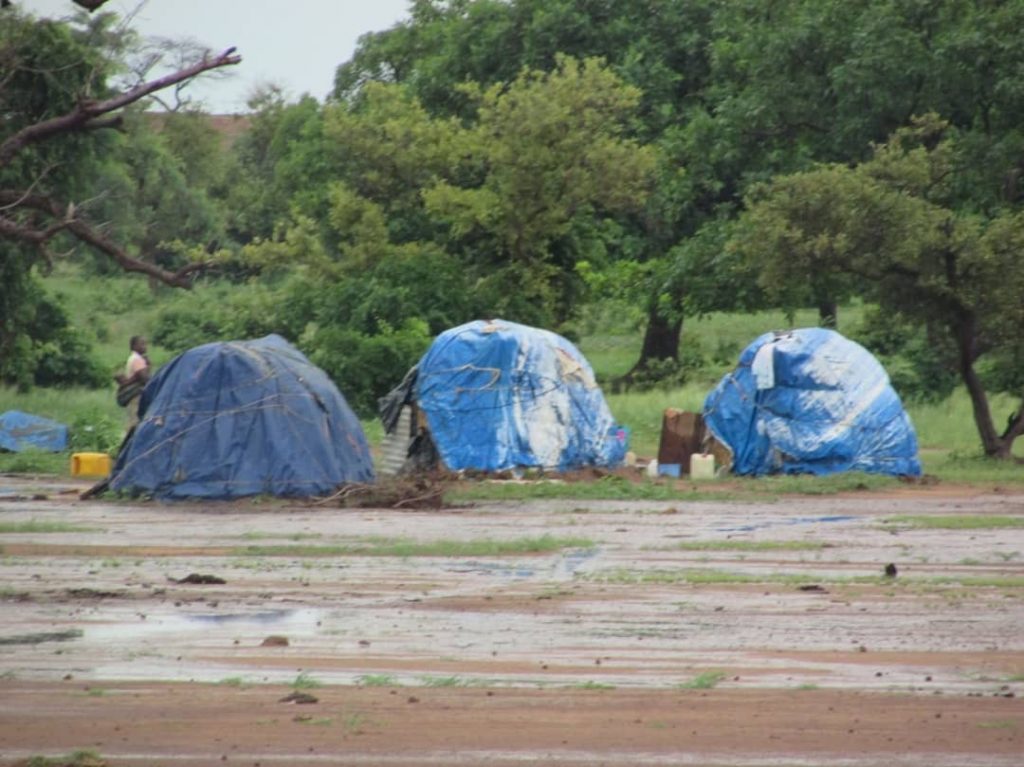
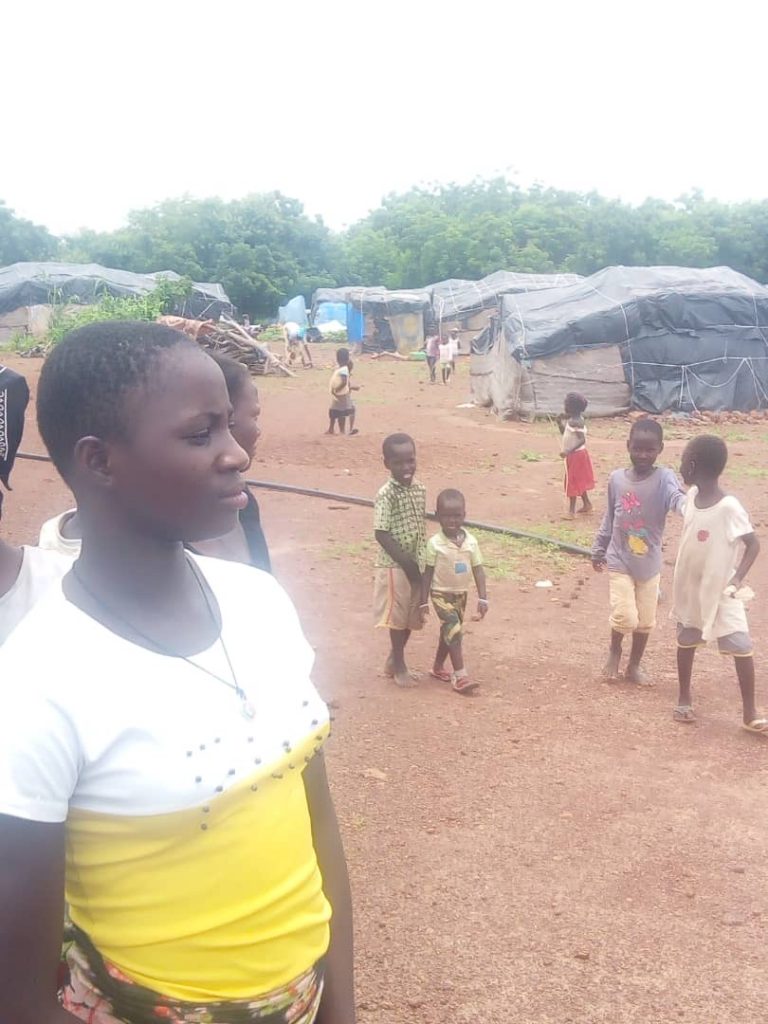
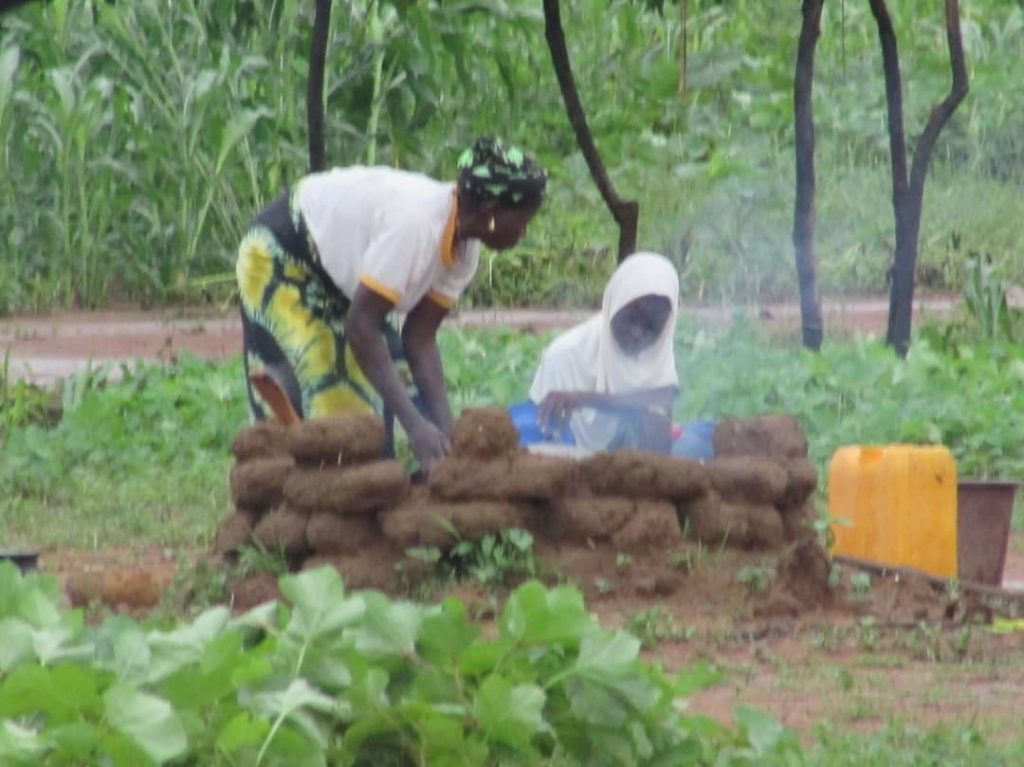
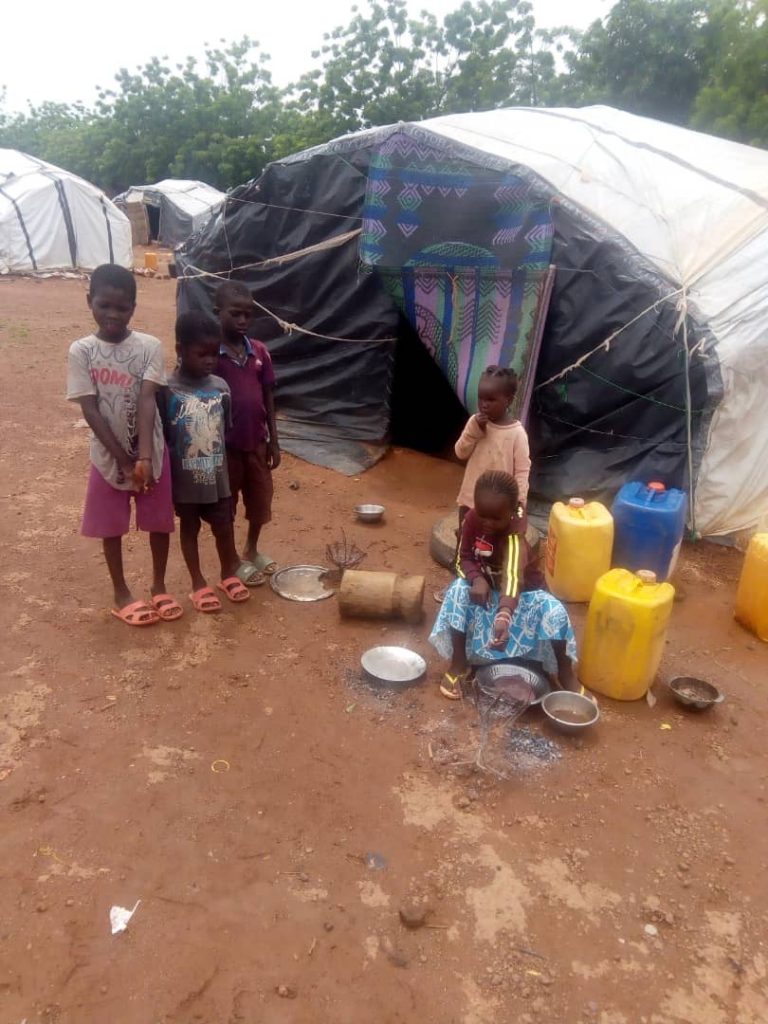
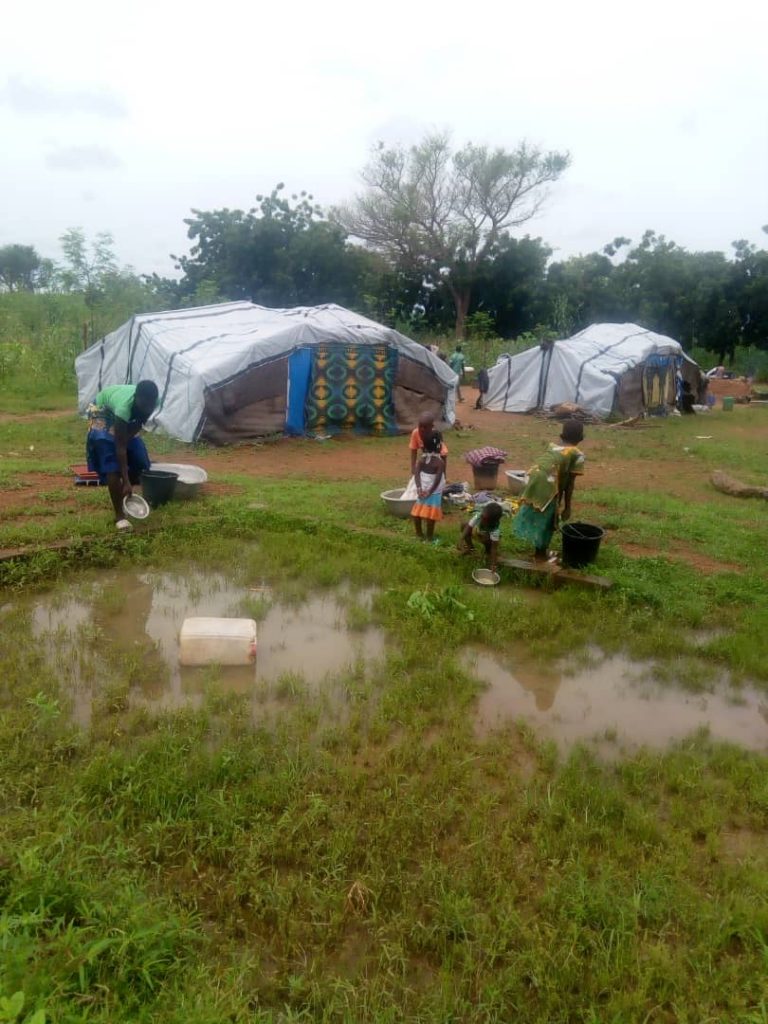
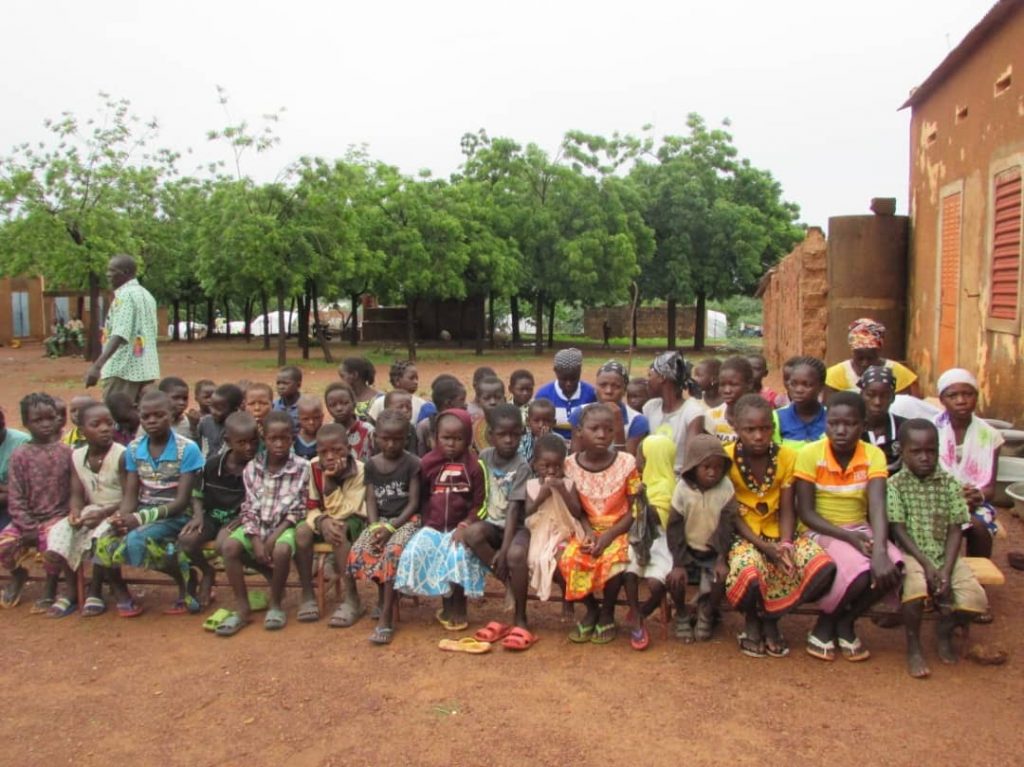
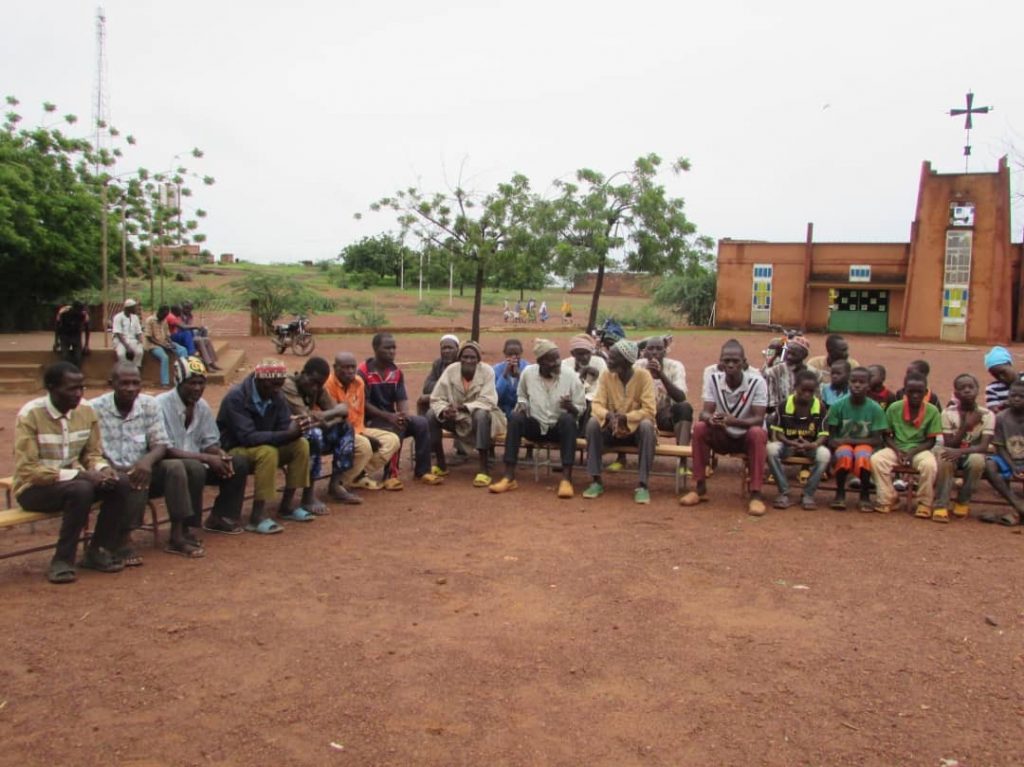
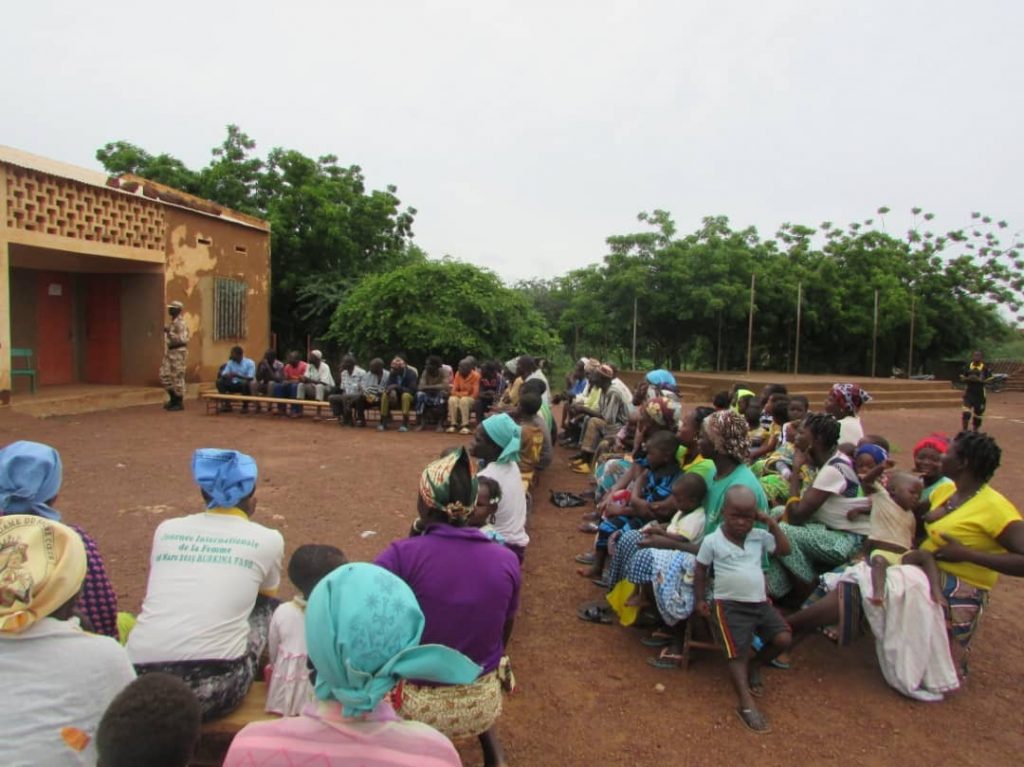
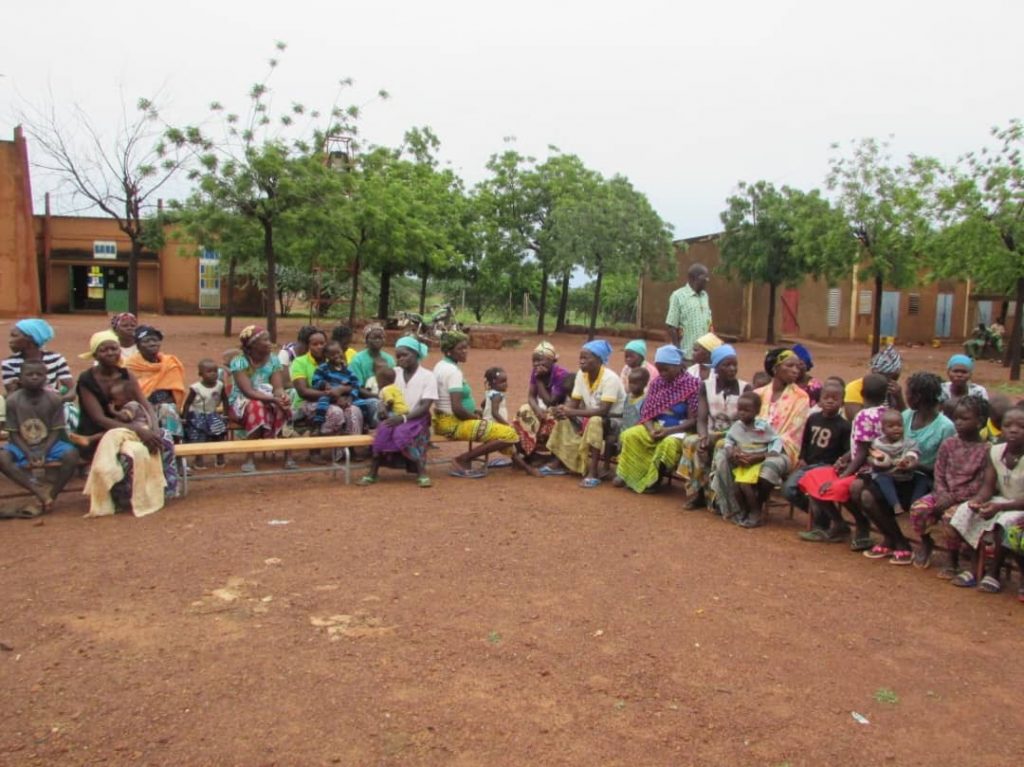
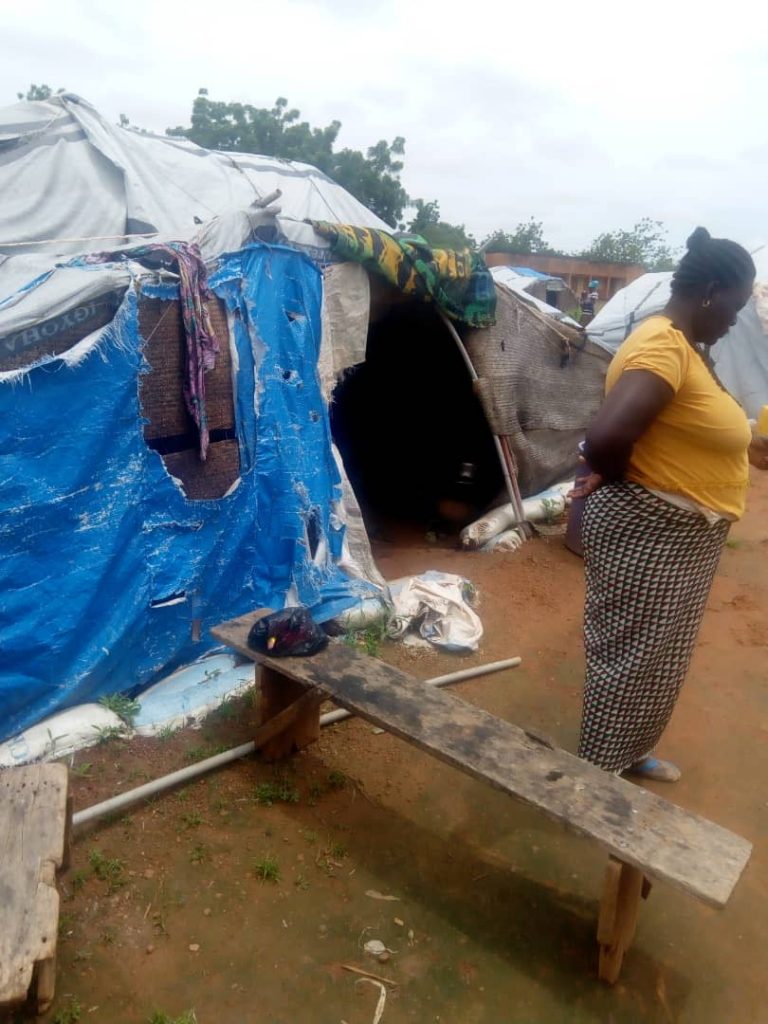
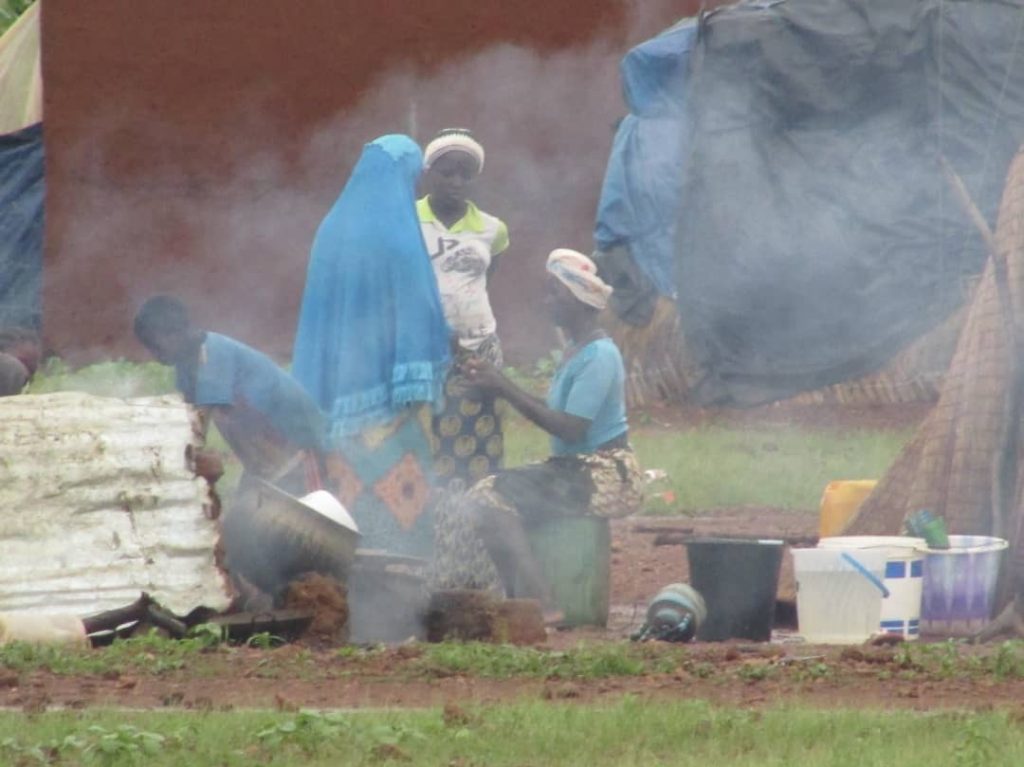
Building community resilience
Many families and children’s lives have been disrupted by violence, displacement, and the COVID-19 public health emergency. Community engagement is crucial to preventing, mitigating, and responding to abuse, neglect, exploitation and violence in households, especially that which affects children.
The CEPMR-ICMC Child Friendly Space partnership is responding by strengthening and expanding the CFS program.
In 2022, the CFS program:
- Provides informal education and psychosocial support for 80 children forced out of school by displacement and now living in the Bourzanga area.
- Undertakes community outreach and identification of out-of-school children in Bourzanga, including highly traumatized children and children with acute protection needs.
- Provides information on available services and assistance and referrals to service providers for out-of-school children.
- Collaborates with health authorities and NGOs to organize vaccination campaigns and monthly medical check-ups for children.
- Holds sessions with families on parenting skills, childcare, hygiene, and child rights.
- Trains social workers and church volunteers on child protection to ensure high standards of care.
ICMC and CEPRM work with partners among other faith-based groups and local civil society actors of the area, especially groups led by women, youth, people with disabilities, and other marginalized or minority groups. Together we develop strategies to effectively advocate and coordinate with national and international stakeholders responding to social protection issues in the community to ensure that affected people’s voices and priorities are heard.
Special attention is given to women and girls. The repercussions of COVID-19 have worsened existing gender-based inequalities in the country, and increased risks of violence against women and girls due to isolation, lower availability of resources and an increased occurrence of child marriage. Women are also more likely to be at the forefront of responses to illness, increasing their risk of becoming sick, and spreading the virus to their families.
